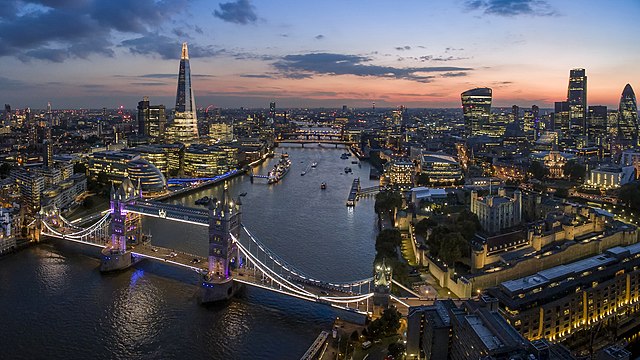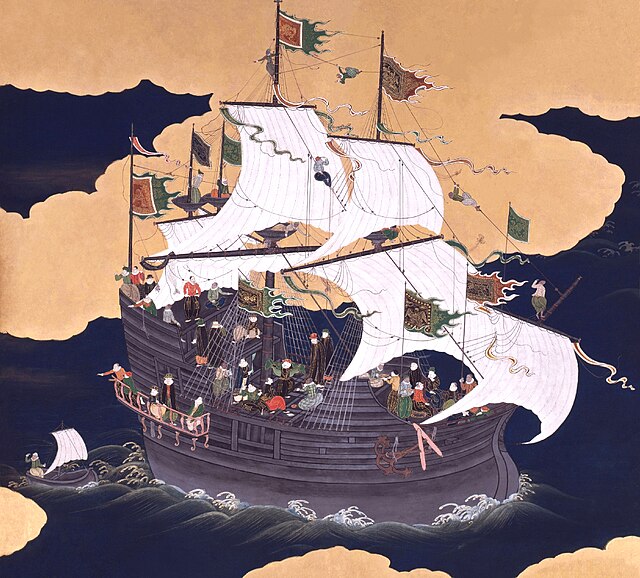A global city, also known as a power city, world city, alpha city, or world center, is a city that serves as a primary node in the global economic network. The concept originates from geography and urban studies, based on the thesis that globalization has created a hierarchy of strategic geographic locations with varying degrees of influence over finance, trade, and culture worldwide. The global city represents the most complex and significant hub within the international system, characterized by links binding it to other cities that have direct, tangible effects on global socioeconomic affairs.
New York City (top) and London (bottom) are the only two cities ranked in the Alpha ++ category by the Globalization and World Cities Research Network. Both cities are considered leading financial, commercial and cultural centers.
Manhattan, the core area of New York City, an Alpha++ global city, where there are several characteristic elements of global cities like worldwide influential economic (New York Stock Exchange) and cultural (Broadway) centers, headquarters of international political organizations (UN headquarters), world renowned museums (the Met Museum, MOMA, Guggenheim Museum), and worldwide-known landmarks (Times Square, Empire State Building, Central Park)
Image: View of Empire State Building from Rockefeller Center New York City dllu (cropped)
Globalization, or globalisation, is the process of interaction and integration among people, companies, and governments worldwide. The term globalization first appeared in the early 20th century, developed its current meaning sometime in the second half of the 20th century, and came into popular use in the 1990s to describe the unprecedented international connectivity of the post-Cold War world. Its origins can be traced back to 18th and 19th centuries due to advances in transportation and communications technology. This increase in global interactions has caused a growth in international trade and the exchange of ideas, beliefs, and culture. Globalization is primarily an economic process of interaction and integration that is associated with social and cultural aspects. However, disputes and international diplomacy are also large parts of the history of globalization, and of modern globalization.
Portuguese carrack in Nagasaki, 17th-century Japanese Nanban art
Native New World crops exchanged globally (clockwise): Maize, tomato, potato, vanilla, rubber, cacao, tobacco
Lisbon in the 1570s had many Africans.
The 1843 launch of the Great Britain, the revolutionary ship of Isambard Kingdom Brunel







